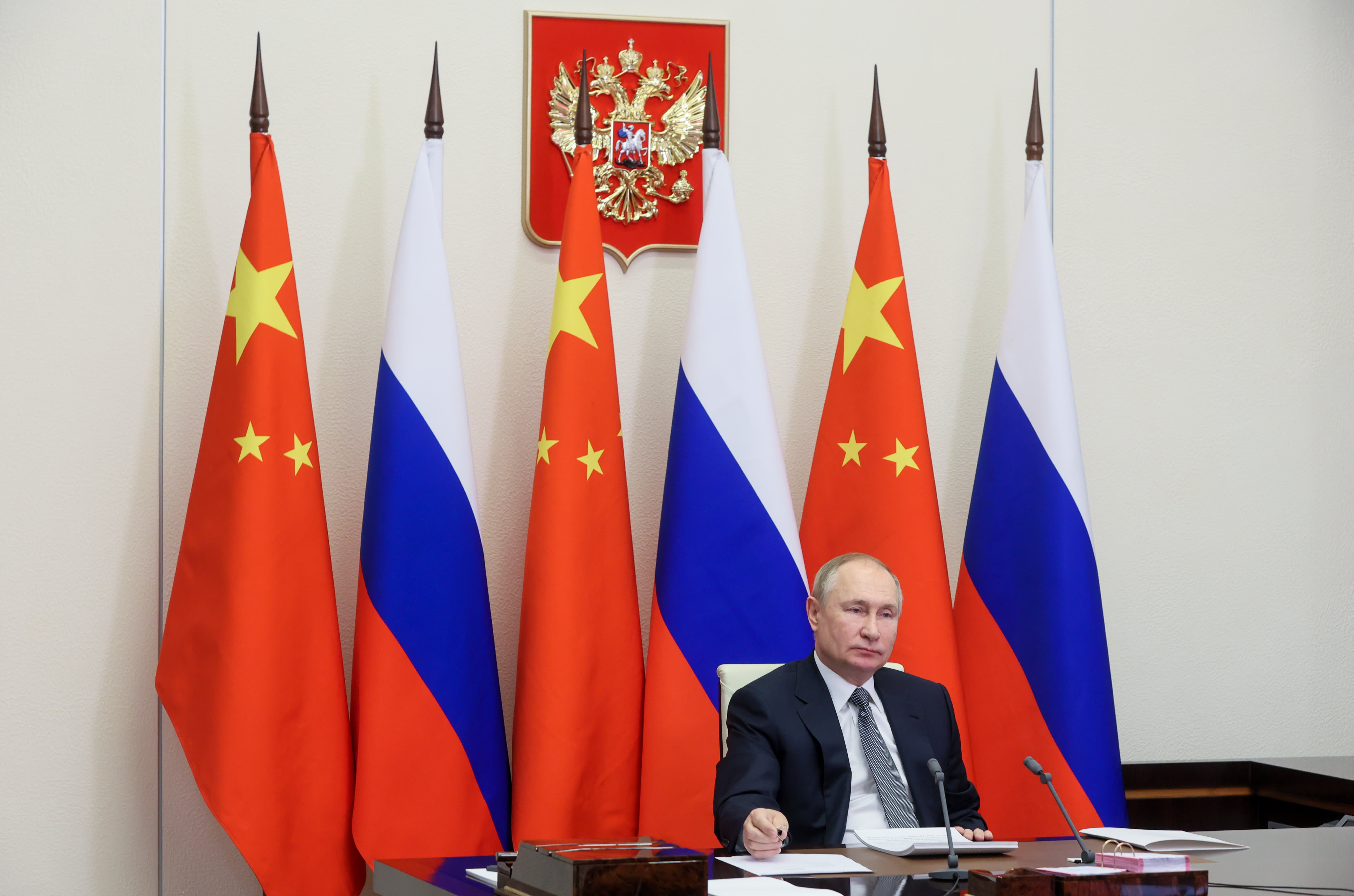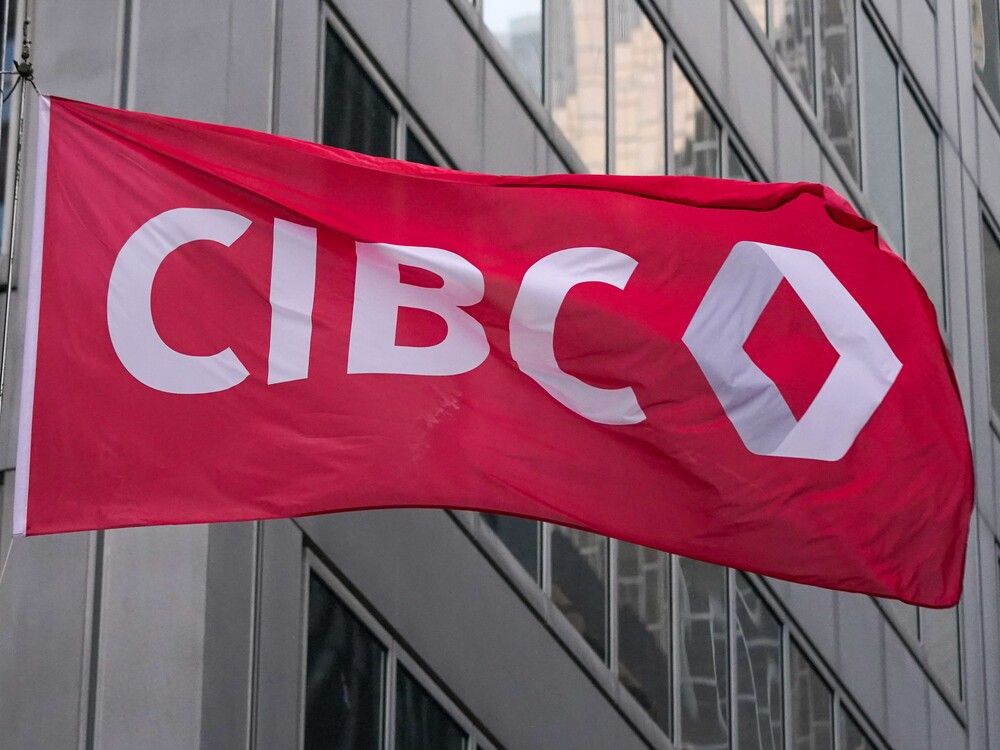China refuses to call Russian attack on Ukraine an ‘invasion,’ deflects blame to U.S.

Russia’s President Vladimir Putin is seen in his office in the Novo-Ogaryovo residence during a bilateral meeting with China’s President Xi Jinping via a video call in Dec. 2021.
Mikhail Metzel | Tass | Getty Images
BEIJING — China’s Foreign Ministry spokesperson refused to categorize Russia’s attack as an “invasion” during a press conference Thursday.
Russian President Vladimir Putin announced an attack on Ukraine earlier in the day, and explosions in Kyiv and other cities in Ukraine followed. Ukraine’s military claimed to be engaged in fighting within its borders, and Ukraine President Volodimyr Zelenskyy described the violence as an invasion to destroy the country.
Within hours, leaders from the United States, Germany, the United Kingdom and beyond condemned the Russian attack.
China’s Assistant Foreign Minister Hua Chunying was asked by reporters several times whether she would call Russia’s attacks an invasion but she repeatedly avoided giving a yes or no answer.
In response to one reporter, Hua appeared to express frustration at the question and said, “The U.S. has been fueling the flame, fanning up the flame, how do they want to put out the fire?”
That’s according to an official translation of her Mandarin-language remarks.
Hua said Russia was an “independent major country” that could take its own actions. She referred repeatedly to Russia’s government statements on Ukraine, such as a claim from Moscow’s defense ministry that Russian armed forces do not strike Ukrainian cities.
“China is closely following the development of the situation. What you are seeing today is not what we have wished to see,” Hua said. “We hope all parties can go back to dialogue and negotiation.”
Earlier in the week, Putin formally recognized the independence of two separatist regions in eastern Ukraine. The U.S. and Europe had attempted to prevent an attack with a series of sanctions on Russian individuals, financial institutions and sovereign debt.
But on Thursday the long-feared Russian invasion of Ukraine began, as explosions were reported in the capital of Kyiv and other cities around the country.
“China is clearly sympathetic to Russian perspectives,” said Tong Zhao, a senior fellow in the Nuclear Policy Program at the Carnegie Endowment for International Peace, based in Beijing.
“China thinks that it’s the NATO expansion and other threats from the U.S. and NATO” that ultimately prompted Russia to defend “its legitimate interests,” he said. “In other words, I think China feels Russia feels it is forced to do what it is doing.”
“Because Russia is now receiving wide international condemnation and criticism I think China wants to avoid being seen as part of this axis,” Zhao said.
But “when it comes to public statements China has been very careful,” he said. “It’s hard for China to openly support this Russian behavior given this implications for China’s own security and China’s relationship with Taiwan.”
Beijing has repeatedly declared it intends to reunify with Taiwan. The island off the coast of mainland China is democratically self-governed but claimed by the People’s Republic of China.
As tensions brewed earlier in the week, China’s Foreign Minister Wang Yi and U.S. Secretary of State Antony Blinken discussed Ukraine in a phone call Tuesday, according to official statements from both the U.S. and China.
The call followed the closing of the Beijing Winter Olympic Games on Sunday. Just ahead of the opening ceremony in early February, Putin met with Chinese President Xi Jinping in Beijing.
‘No limits’ on cooperation with Russia
After the meeting, the two leaders issued a lengthy statement that did not mention Ukraine by name, but opposed “further enlargement” of the North Atlantic Treaty Organization and said there were “no limits” or “forbidden” areas of cooperation between Russia and China.
Zhao said China is unlikely to make significant changes to its position on Russia but will distance itself from a situation that experts in China previously misread in an environment of tight information control.
Even as recently as Tuesday evening Beijing time, Wang Jisi, president of the Institute of International and Strategic Studies at Peking University, said, “China’s observation of this situation is that Russia’s military action is probably not that imminent as the Americans’ [observation].”
Wang was speaking during a rare trip to the U.S., as part of a livestreamed conversation with Washington, D.C.,-based Center for Strategic and International Studies China Business and Economics Trustee Chair Scott Kennedy.
“I think strategically China is moving closer to Russia, and China-U.S. relations are deteriorating,” Wang said. “but it could be a crucial moment for the three countries to readjust their relationship with each other.”




